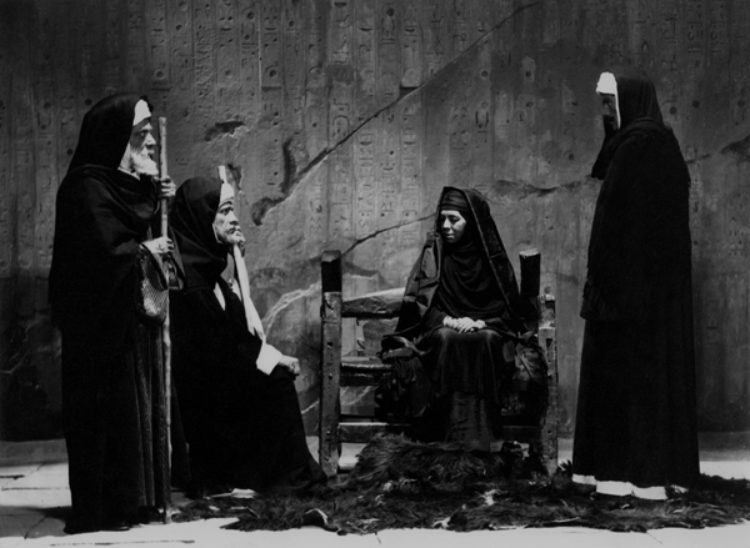The origins of this story lie in a true event that took place during an expedition led by the French archaeologist Maspero to the Valley of the Kings near Thebes in 1881. A tribe in the Horrobat Mountains that lived in conditions of extreme poverty had been organizing the looting of ancient tombs for centuries and keeping their location secret. When the chief of the tribe died, his two sons were informed of the passageway to the tombs by their uncle but refused to continue the trade. This film by Shadi Abdel Salam, the director’s only feature, is without a doubt one of the greatest works in the history of Egyptian cinema. The unique formal ambition of the film bears witness to an essential and singular consideration of the awareness of cultural heritage. Through this story, the film questions the present day Egyptian cultural identity, both in its relationship with a distant past that it only knows through profanation and econo- mics and in a more political manner to consider the causes of this state of affairs, the material and moral poverty of the people and the consequence of it.
Home > Films > The Night of the counting years
The Night of the counting years
(Al mummia)
- Egypt
- 1969
- Fiction
- Couleur
- 100′
- 35 mm
- Titre français
La momie - Original title
Al mummia - Titre international
The Night of the counting years - Scénario
Shadi Abdel Salam - Photo
Abdel Aziz Fahmy - Montage
Kamal Abou Al-Ella - Musique
Mario Nascimbene - Interprétation
Ahmed Marei, Ahmad Hegazi, Zouzou Hamdy El-Hakim - Production
Organisme du cinéma egyptien - Producteur délégué
Salah Marei




